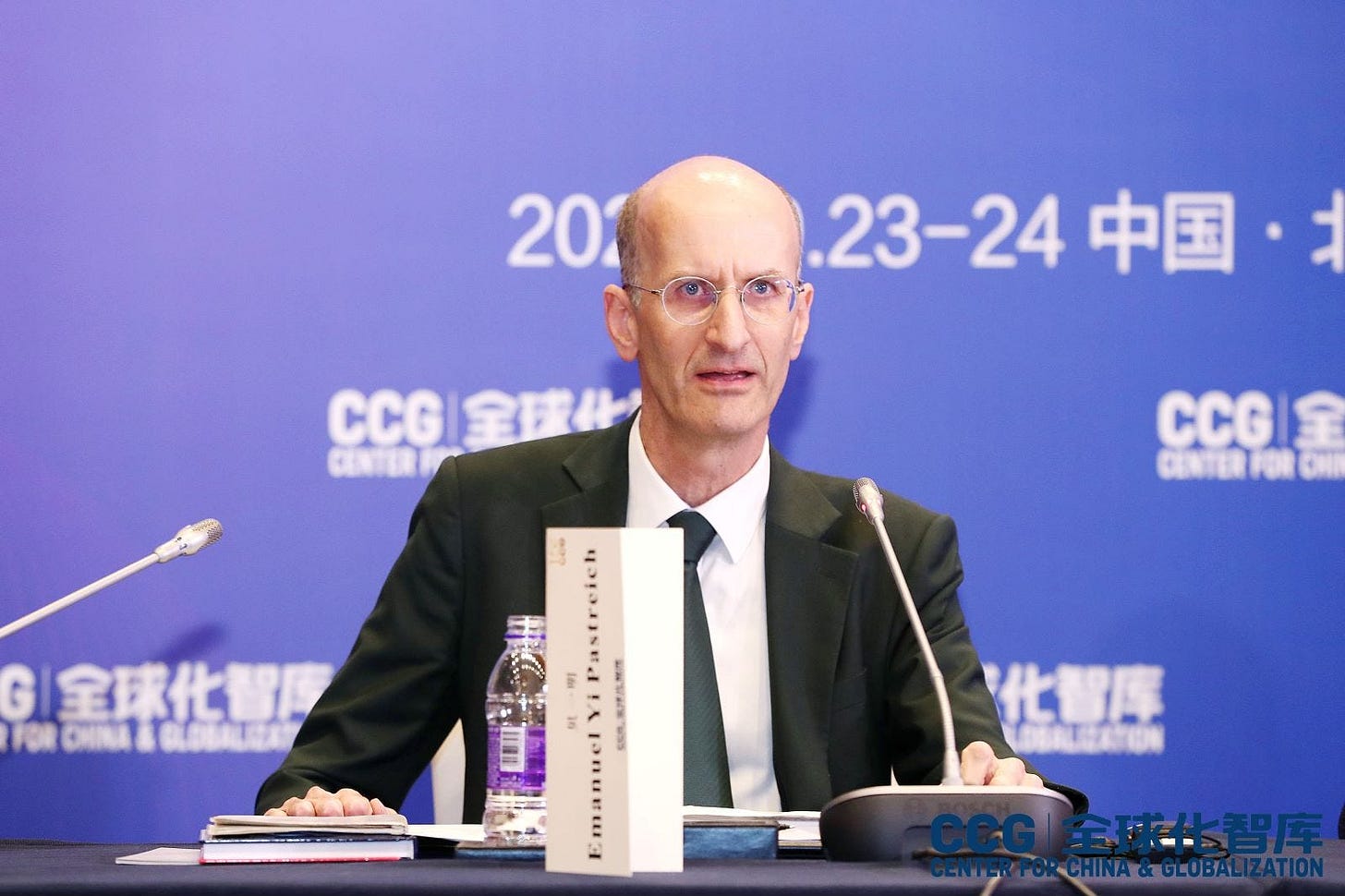My comments from the panel "Reframing US-China Bipolar Dynamics by Pluralizing into China-West Relations" at the 8th China Global Think Tank Innovation Forum (October 24, 2023) hosted by Center for China and Globalization.
It was quite unusual that someone as critical of the globalist economic system that is destroying the United States and China today as myself be invited to a mainstream event celebrating trade as a way to solve problems. But that is what happened. Perhaps I was invited because I am an American who actually speaks Chinese and knows something about Chinese culture and history? Perhaps there were many Chinese behind the scenes who fully understand that investment banks and multinational corporations promote consumption and overproduction and that consumption and overproduction lead to war.
Here are my comments. I started out in Chinese because so many of the Western-educated Chinese insisted in speaking in English. That created an environment in which the Chinese who did not speak English did not feel comfortable speaking.
Reframing US-China Bipolar Dynamics by Pluralizing into China-West Relations (substack.com)
(in Chinese)
I want to say first that Chinese is a common international language. When Chinese people start speaking in English at international events like this, it makes it difficult for those Chinese who don't know English to participate in our discussions. Therefore, I am against that practice. Best if we all express our opinions in our native language. I think that speaking in a foreign language creates problems because this is an international event. I'll be speaking in English, though I can speak Chinese.
(in English)
Confucius spoke of the idea of the “rectification of names” (zhengming正名), suggesting that names and things should be in harmony. The gap between names and things is the primary cause of problems today and the cause of the breakdown in governance. If we look at both the American and the Chinese sides, that breakdown lies at the core. And since we don't talk so much about this issue in these think tank discussions, I'll go out on a limb and say a couple of words.
I'm going to talk about the United States, but everything that I say applies to China as well, although with Chinese characteristics. First the gap of the name and the thing appears in the government. Obviously, the government is critical for society, but we see a radical tendency to privatize the government, whether it's in the US Congress, where elected officials and staff members go work for hedge funds for several years to enrich themselves, or in the outsourcing of government processes to for-profit organizations with their own conflicts of interest. This breakdown of government, private business pretending to be government, spills over into the military, which is also increasingly (along with intelligence) outsourced, often to multinational corporations whose interests do not correspond with those of the nation-state.
Or let us consider the word "bank," We often use the word "bank" to describe the organizations handling, and creating, money. But that “bank” no longer corresponds with a "bank" in the sense that we used it 40 years ago, or even 15 years ago. The nature of banks, the nature of banking, and the nature of money, has profoundly shifted, and the term, the concept, has not kept up with these transformations.
Journalism, the passing on of accurate information to the people about what's happening in the world, has also been transformed by the commercialization of that process. The results are terrible in the United States and China, and globally.
And finally, I think the most serious gap between names and things is found in the case of "science" and "technology." I see that in China, but also the United States, people use the terms "science" and "technology" interchangeably together, as if they had the same meaning the same thing. In fact, science is the complete opposite of technology. Science is the philosophical pursuit of truth, using a variety of analytical methods, the scientific method being the most prominent, so as to ascertain what is accurate or true. Technology is a process, or a system, which produces a result, an effect. Often science and technology are in conflict. As we know, in this digitalized world, we have systems of technology which often produce untrue, unscientific, results.





Here is my article from the topic from a few years ago
What’s in a name? A lot
Our most urgent task: The rectification of names and the reclamation of politics in Korea.
https://koreajoongangdaily.joins.com/news/article/article.aspx?aid=3014345
Excellent treatment of a very critical and intrinsic subject for society, environment, and man.